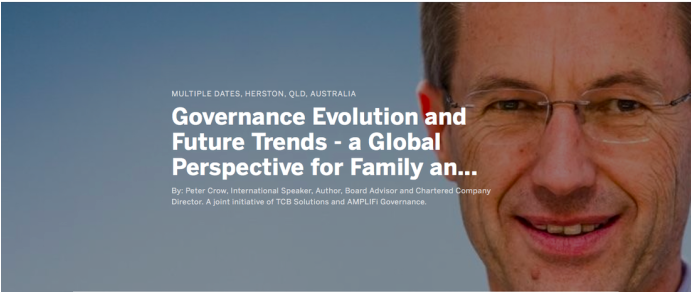|
The current fuel supply problems in France, and planned strikes involving the Parisian Metro and bus network and air traffic control is likely to have a major impact on the French economy and, no doubt, its reputation as a reliable destination for commerce and pleasure. Normally, situations like this are simply stories on the news feeds—news from afar. However, this one is a little more personal because I am due to be in Paris 1–3 June to speak at the EURAM conference. The planned strikes will cause chaos, rendering movement around the city nigh on impossible and placing my return to London to meet pre-booked long-haul flights at serious risk. After considering several options and weighing up the risks, the best (but far from ideal) decision seems to be activate Plan B, to cancel the Paris portion of the trip. Sadly, this means I will not attend EURAM this year. All is not lost though. The London portion of the trip has been very worthwhile. To have met several influential business leaders and participated in some important discussions has been a privilege. The prospect of several advisory and speaking engagements now looms large. Consequently, I will return to London in mid September and again in late October. Please get in touch if you want more details of the visits, have a request or you wish to schedule a meeting.
0 Comments
I'm in London this week, meeting business leaders and board advisors, listening to their stories and sharing a few of my own. Already, after just 24 hours, a strong theme is starting to emerge. A drum that I have been beating for several years now can be heard reverberating amongst the streets of the City and beyond. Though faint at first, expectations are starting to move. Increasingly, shareholders, commentators and even some directors are beginning to voice concerns about what boards actually do. Many boards have operated in a perfunctory manner for years—the oversight of management has been a convenient diversion. However, the amount of the red tape boards have to deal with is lifting the stakes. The expectations on boards are rising. Last week, in Brisbane, many of the 220 directors that I addressed said that boards should spend more time on firm performance. Today, in London, the suggestion that compliance-based regimes do nothing for value creation and that boards need to allocate much more time to strategy was voiced in every meeting I attended. Next week, in Paris, who knows? Are we on the cusp of a paradigm change? Is the stirring anthem of the république gaining momentum? Perhaps. That directors are now realising that more time must be invested doing what shareholders appointed them to do—setting strategy and steering companies towards agreed performance goals—should be music to one's ears. Might we even be witnessing a 'back to the future' moment, as directors and boards embrace Cadbury's plea: that corporate governance is the means by which companies are directed and controlled, with a performance objective in mind? I hope so.
Is the diversity discourse that has pervaded board and shareholder discussions in recent years showing signs of maturing? It seems to be. Thankfully, most correspondents have moved past blunt claims—including that the presence of <diversity variable> leads directly (i.e., causative) to increased firm performance. While researchers have demonstrated that the presence of women on boards, for example, has been associated with more civil language and higher levels of engagement and critical thought, direct links to firm performance remain elusive. The reality is far more subtle: many underlying factors affect performance—some occurring inside the boardroom and some outside. While progress is being made, concerns over the motivations of 'diversity' proponents remain. Is the goal to achieve increased board effectiveness (however that might be measured), or is a political or social agenda being played out? The challenge of selecting the 'best' company directors is far too important to be left in the hands of those with political or social agendas. I know several white male directors (all of known are highly qualified and eminently suitable as company directors) who have been told they do not meet notional diversity criteria. How should directors be selected? One option might be to base your decision on guidance provided by Warren Buffett (see Berkshire Hathaway's 2006 Annual Report): In selecting a new director, we were guided by our long-standing criteria, which are that board members be owner-oriented, business-savvy, interested and truly independent. I say “truly” because many directors who are now deemed independent by various authorities and observers are far from that, relying heavily as they do on directors’ fees to maintain their standard of living. Charlie and I believe our four criteria are essential if directors are to do their job—which, by law, is to faithfully represent owners. Yet these criteria are usually ignored. Instead, consultants and CEOs seeking board candidates will often say, “We’re looking for a woman,” or “a Hispanic,” or “someone from abroad,” or what have you. Over the years I’ve been queried many times about potential directors and have yet to hear anyone ask, “Does he think like an intelligent owner?” Enough said, don't you think?
A couple of weeks ago, I met with a recently appointed chief executive who wanted to test some ideas in his quest to identify the company's USP (unique sales proposition) and, therefore, its point of difference. Paul's concern was that the company was operating in a crowded and competitive marketplace without a coherent strategy, and that success was dependent on standing out. We had a fascinating conversation—the essence of which is repeated here because Paul's question seems to be topical (I have just come off a phone call with a chairman (different company) who posed a very similar question). I asked Paul to describe the company and summarise the present reality. He recounted the company's past successes, current capabilities, market position and strong product line. Then he said that market share had drifted downwards in recent years. After sipping my coffee, I asked Paul why the company existed. He looked blankly at me as if I had come down in the last rain shower. "To make a healthy profit, of course". "Of course", I said. "I expected to hear that. But doesn't every company have that goal? How does being different serve this goal, especially when barriers to entry are so low these days that difference is only temporary, at best? "Apart from serving our collective egos, that you have something different (or even unique) to offer is of little consequence to most busy people. It matters even less when a competitor offers something seemingly similar for a lower price. When this happens, it's a race to the bottom—and that's dumb. Shouldn't your motivation be to make a difference and help your clients achieve their goals? With this in mind, might a better objective be to identify your company's 'point of impact'? In my experience, people choose to embrace your ideas and buy your product because they believe in you and what you represent. Imagine the response if MLK had uttered "I have a plan"—that speech would have been a footnote, gathering dust in the annals of history. But he didn't." The conversation moved to other matters. Then, as we finished our coffees, Paul smiled knowing that he had some work to do. I wished him well and we parted ways. Do you know why your company exists? The next time your board and executive gathers to review strategy and set future goals, start by asking this question. I respectfully suggest that you don't move on until a lucid answer is both determined and agreed.
 News has emerged from Volkswagen this week that the board has proposed that shareholders formally approve the work of the company's top management team. Wow, I'm amazed. Isn't that the board's job? The board exists as a decision-making proxy for absent shareholders and, in so doing, the board should provide oversight of management including of its work. Regular board meetings and other board–management interactions provide the appropriate forum for this reporting, verification and monitoring to occur. In contrast, annual meetings provide a forum for the board and management to provide an account of the resultant company performance to the shareholders. That the Volkswagen board of directors is recommending that the work of management is approved by the shareholders creates the impression that the board is not doing its job of overseeing management adequately. While this could be an obfuscation (following the trouble the board and management found itself in over the emissions scandal), if the board is attempting to shift responsibility (for oversight of management away from the board) it needs to be called out. The shareholders then need to determine whether the current board is delivering value or simply defending a position—it's own.
I'm looking forward to looking forward with some great Australian leaders in Brisbane, QLD on Thu 19 May. I'll be talking about emerging trends including the board's role in value creation; the importance of setting a clear purpose for the business; board involvement in strategy; how to drive performance through the chief executive, in reality; and, telling a few stories along the way. Look forward to seeing you there! Two events have been scheduled on Thu 19 May: breakfast and dinner. The breakfast event is almost booked out. However, some seats at the dinner event are still available. If you want to hear about emerging trends in governance and board practice, and their application in a family business context, click here to read more information and to register.
This is a brief note in two parts: to say 'thank you' and advise that I'll be in London and Paris again soon. First, thank you for your continued interest in effective corporate governance as a means of fuelling high business performance. That so many directors and business leaders have contacted me over the last few years, either to tell their story or to seek guidance has been truly gratifying—and even more so when the same people reach out again, many glowing at increased business performance achieved following the initial conversation. So, thank you for reaching out. Second, I will be in London again very soon (24–31 May), to continue the conversation with directors, boards and business leaders; ahead of a short visit to Paris (1–3 June), to present a paper at the EURAM conference. Currently, my diary has a few gaps, so if you would like to take advantage of my proximity to discuss an aspect of corporate governance, board practice, strategy or firm performance; learn about emerging trends; or, toss around a 'live' challenge you are grappling with, please get in touch to schedule a meeting. I'd be delighted to hear from you and to attend a meeting at a time and place that suits you. My availability in London is as follows:
My availability in Paris is more limited because of the conference. However, I am available for dinner meetings on Wed 1 June or Thu 2 June; or, an early morning meeting on Fri 3 June. I look forward to chatting with you soon.
Fonterra has been doing it tough lately. That the company's board and management is under pressure is patently obvious. Fonterra needs to respond, but how? Is Fonterra simply a victim of a perfect storm, or could the current problems have been avoided (or at least their effect minimised)? Some background. Fonterra is New Zealand's largest company, responsible for 25% of the country's GDP. The company, a co-operative, sells milk products around the world. It sells, largely, commodity products and, therefore, is exposed to commodity pricing fluctuations. The prices Fonterra is receiving for its milk products has fallen significantly in recent times, down to US$2176 per tonne (whole milk powder) at the latest GlobalDairyTrade auction on 3 May 2016—less than half what it was two to three years ago (the price averaged US$5000 per tonne in 2013). As a consequence, the price Fonterra pays to its farmer-suppliers has tumbled, from highs of over $8.00 per kilo of milk solids to now $3.90 per kilo. During the good times, farmers were actively encouraged to convert land from other types of farming to dairy farms. Many did so, funded by debt. Banks supported these conversions, given the high milk prices. However, few realised that milk prices follow oil prices very closely (the correlation value is something like 0.95 and the lag is measured in weeks). As oil prices dropped, milk commodities followed, and predictably so. Now, many farmers are running up huge losses, and yet Fonterra continues to encourage more supply which, inevitably, will make the problem worse not better. If the company stopped investing in monolithic bulk plants, it would free up hundreds of millions of dollars immediately. That money could be used to support suppliers with better prices, or to make some serious moves further up the value chain, as Tatua and others have already proved is realistically achievable. So, where to from here? From the outside looking in, Fonterra has several options worthy of investigation. Here's a few suggestions to get things underway:
If the Fonterra board is serious to driving company performance, for the good of all shareholders and the economy more generally, it needs to gather off-site with management urgently for several days. Sleeves need to be rolled up and egos left outside the room, to sort out why Fonterra exists (purpose); formulate a high-level strategy; and, develop a realistic recovery plan. Strong external facilitation will be required (probably a couple of capable independent facilitators with dairy sector, strategy and governance backgrounds) to work through some fairly tough issues. If this can be achieved, the company (and, therefore, the shareholders and suppliers) and the country will be better for the effort.
MediaWorks, a broadcasting company that owns several radio, television and internet brands is doing it tough, this week especially, to the extent that the wheels appear to be falling off. Consider these recent events:
None of this augers well for a company that is struggling to maintain mindshare and marketshare against the national broadcaster, Television New Zealand. A blind man can see something is wrong, badly wrong. My sense is that the spotlight needs to be shone on the board. After all, it is the board that holds the ultimate responsibility for overall company performance and the various contributory pieces including culture; values; strategy; and, the performance of the chief executive. That the company has been struggling for a couple of years or more, and seems to have been (blindly?) experimenting with programming options suggests that the board doesn't have a good grasp on things. Sadly, MediaWorks is not the first company to trip in this way, and it won't be the last. Several years ago, I studied another company with a successful track record that, unexpectedly, began to fail. Though operating in a different sector of the economy, that case (sorry, I can't disclose the details) had similar characteristics to the MediaWorks situation. The board had hired a sanguine chief executive to craft and implement a new growth-based strategy. The board gave the chief executive plenty space to operate, to such an extent that it did not scrutinise the chief executive or company performance adequately. Ultimately, the strategy was flawed and the board only worked that out when a staff member blew the whistle. The board had been gamed—it had been asleep at the wheel. To its credit, the board's response was strong: it released the chief executive and many directors resigned as well. Shareholders were briefed, and they were invited to recruit a new board and 'start again'. Within six months, the company had a new board and chief executive; its 'reason for being' (core purpose) was revisited; a new strategy was developed to achieve the purpose; and, resources were adjusted to suit. The company got back on track and it continues to perform well to this day. Perhaps it's time for the MediaWorks board to also respond to the signals, by looking in the mirror; reigning in the culture of hubris and excess that seems to have pervaded the company; and, making some much needed adjustments. The fish rots from the head, after all.
After several years of paying high milk prices to its farmer-suppliers, Fonterra has hit hard times. International demand for milk products has slumped. On the supply side, prices paid to farmer-suppliers have tumbled. Some have said the problem is primarily related to changing demand especially in China, whereas others have suggested that Fonterra is complicit having stimulated supply to 'feed' its massive processing plants. To make matters worse, Fonterra has started losing farmer-suppliers to its competitors and it seems to be exercising "considerable discretion" with payment terms as well. The latest commentary, an interview on Paul Henry's breakfast show today, lay out some of the challenges in plain English. Click here to watch the video clip. (disclosure: James Lockhart is my doctoral supervisor, but had no prior knowledge of this interview.) The situation, which has been brewing for a several years, is messy to say the least. Other companies including Tatua and Open Country Dairy seem to coping much better. This begs several questions including whether the Fonterra board and management are actually in control; whether the corporate strategy is sound or not; and, whether the company has the financial and managerial resources to respond effectively. While I'm nowhere near close enough answer these questions, the old saying "where there's smoke there's fire" seems to apply.
|
SearchMusingsThoughts on corporate governance, strategy and boardcraft; our place in the world; and other topics that catch my attention. Categories
All
Archives
May 2024
|
|
Dr. Peter Crow, CMInstD
|
© Copyright 2001-2024 | Terms of use & privacy
|









